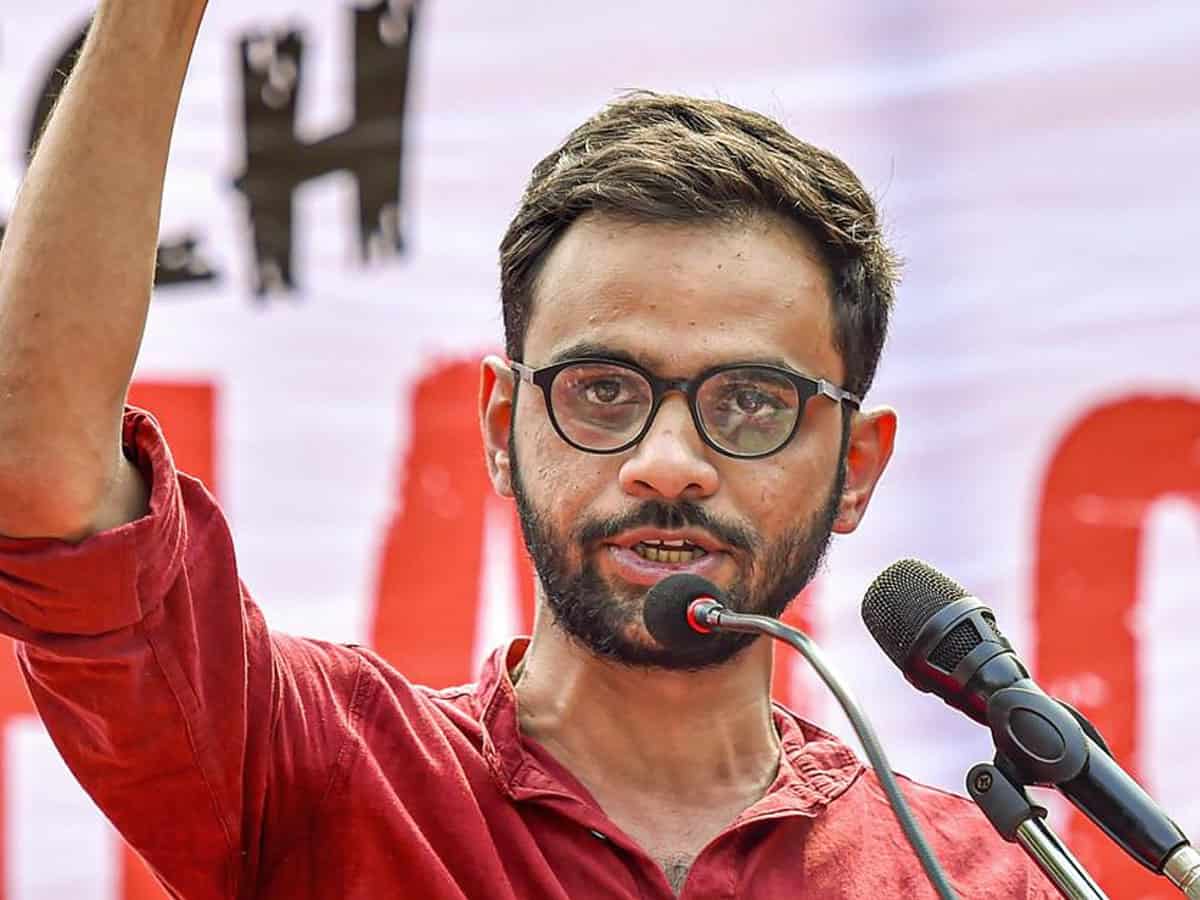
New Delhi: The Delhi Police has opposed before the Delhi High Court a plea of former JNU student Umar Khalid seeking bail in a case under the stringent UAPA for alleged conspiracy behind the 2020 riots in Delhi, saying the narratives sought to be created by him cannot be looked into as his defence at the this stage.
In its reply filed to the plea which challenges the rejection of Khalid’s bail application by the trial court, the police stated that the trial court has “rightly dismissed” Khalid’s plea for release by a “well-reasoned order” which suffers from no illegality.
“It is most respectfully submitted that the appeal raises no good grounds for consideration by this hon’ble court and thus the same be dismissed, in the interest of justice,” stated the reply filed through special public prosecutor Amit Prasad.
“At the stage of bail, the narratives sought to be created by the Appellant cannot be looked into as his defence. The Appellant before the Ld. Trial Court raised ipse dixit arguments seeking to conduct a mini trial at the stage of deciding the bail application and to view the appellant’s role in isolation in the case of conspiracy which is impermissible in law,” it added.
In the reply, the Delhi Police further claimed that the length and breadth of the conspiracy and role played by different entities, WhatsApp groups and individuals in pursuance to the conspiracy behind the riots would be clearly demonstrated by the trial court orders rejecting bail to the other co-accused in the case.
The police also sought the court’s permission to rely on the underlying material from the charge sheets to oppose the bail plea.
It also said it “strongly refutes the allegation that the prosecution has dropped any allegation as is contained in the charge sheet” against Khalid or any of other co-conspirators.
Khalid and several others have been booked under the anti-terror law in the case for being the “masterminds” of the February 2020 riots, which had left 53 people dead and over 700 injured.
The violence had erupted during the protests against the Citizenship Amendment Act and the National Register of Citizens.
Khalid sought bail in the case on the ground that he was not present when the violence broke out, no money was recovered from him and the case is based on cooked up statements.
Last week, the high court had granted three days’ time to the Delhi Police to file its short reply to the bail application filed in the case and listed the case for further hearing on April 27.
The court had held that Khalid’s speech given in Amravati in February 2020, which formed the basis of the case against him, was obnoxious, prima facie not acceptable and that certain statements in the speech were “offensive per se”.
On March 24, the trial court had denied bail to Khalid, saying there were reasonable grounds to believe that the accusations against him were prima facie true.
Additional sessions judge Amitabh Rawat had noted from the charge sheet that there was a premeditated conspiracy of a disruptive ‘chakka jam’ and a pre-planned protest at 23 different sites which was to escalate and result in riots.
“On the perusal of the charge sheet and accompanying documents, for the limited purpose of the bail, I am of the opinion that allegations against the accused Umar Khalid are prima facie true,” the trial court had said.
It had rejected the contention that Khalid was a researcher and that his bent of mind can be assessed from his doctoral thesis on Welfare aspects of Adivasis of Jharkhand and other writings, saying it was not a relevant consideration while deciding the bail application.
“The target was to block roads at mixed population areas and encircle the entire area completely stopping the entry and exit of citizens living there and then creating panic to attack on police personnel by women protesters in front only followed by other ordinary people and engulfing the area into a riots and the same would be covered by the definition of terrorist act,” the court had noted.
The trial court had also rejected the contention made by defence counsel that Khalid was part of the WhatsApp group ‘MSJ’ and ‘DPSG’ but he had not written many messages in those groups and they are not overtly provocative or incriminatory, saying the fact that he was part of such groups created for specific objects and his acts or presence throughout the period beginning from the passing of the CAB Bill in December 2019 till the February 2020 riots has to be read in totality and not piecemeal.
Besides Khalid, activist Khalid Saifi, JNU students Natasha Narwal and Devangana Kalita, Jamia Coordination Committee members Safoora Zargar, former AAP councillor Tahir Hussain and several others have also been booked under the stringent law in the case.



